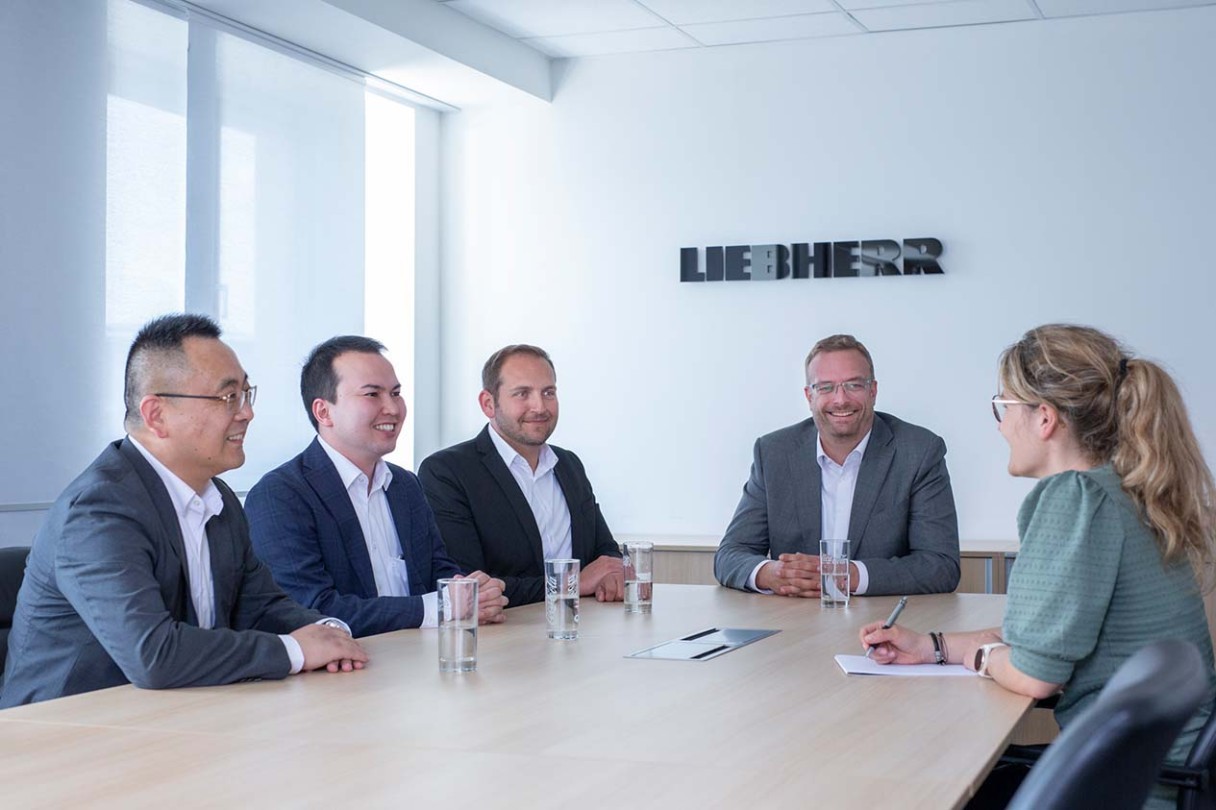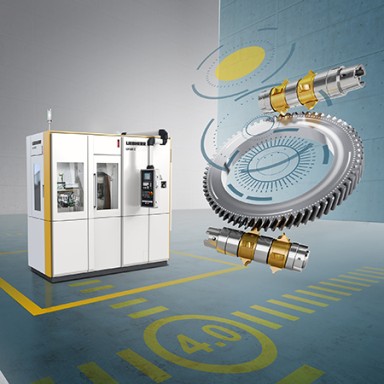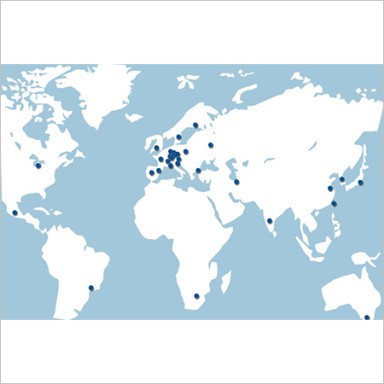The Liebherr Group has been present in the Asian market for almost 50 years. How has the gear technology division expanded its activities there in recent years?
Feng: In China, we have been serving our customers via our sales office in Shanghai since 2014. Since 2019, we have been producing gear hobbing and gear grinding machines at our plant in Yongchuan, enabling us to offer manufacturing as well as sales and service locally and thus meet our customers’ needs even more quickly and efficiently.
Nagatsuka: The Tokyo site was established in 2016. This is where we coordinate sales and service, which has been carried out by our own service technicians since then. It has enabled us to significantly improve service quality and bring us even closer to our customers.
What communication channels do you use and how do you coordinate with each other?
Grünwald: We actually communicate on a daily basis and are in close contact via e-mail, telephone, Teams or Messenger. In addition, there are regular monthly team meetings with our colleagues in China and Japan. Guillaume and I travel there two or three times a year, and our colleagues from there also visit us several times a year, sometimes together with customers. Thank goodness direct contact is possible again. And we see again and again how important it is – in both directions!
Roth: For most new projects, the market sales department has the first contact with the customer. It plays a decisive role here, because it gathers the information which the product sales department bases the quotation on. We also stay in close contact with Market Sales during and after the preparation of the quotation, including on topics that go beyond the purely technical. We scrutinize things and always look to see where we can still make improvements. And if there are any problems, we find a solution together.

Are there any peculiarities in the Asian market compared to other regions of the world?
Grünwald: Basically, every country, every region, and even every company has its own culture and its own way of doing business. Our sales team is very good at understanding each cultural context and finding out what the customer wants. We don’t just translate the language, but also the cultural background, so to speak. For example, in China, a direct „no“ is considered impolite and should be expressed in a much more sophisticated manner.
To what extent have the pandemic and lockdown restrictions affected or changed your work?
Feng: It wasn’t always easy, particularly for the service department. Until then, staff had come from Kempten to help out, but the travel restrictions put a stop to that. But thanks to online tools and remote support, communication was still ensured. As a result, the service staff at our Asian locations are now even better trained and have been able to build up a lot of expertise. It’s a win-win situation: we can provide on-site service ourselves, which in turn reduces the costs for our customers.
Roth: The sales department was able to compensate for a great deal with online communication tools. Even so, we missed the face-to-face meetings. Now we’re glad to meet the customers again after such a long time!
Nagatsuka: With virtual events such as the Liebherr Performance Days, we stayed close to customers even during the pandemic. We even translated live into Chinese and Japanese for our customers in an interactive chat. We want to further expand formats like this and give customers the opportunity to talk to us directly!



